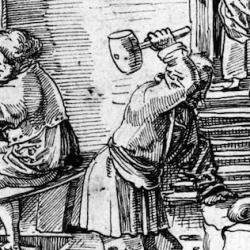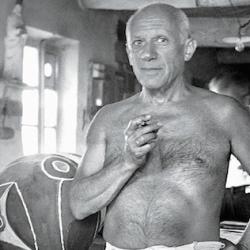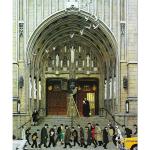In a typically dense, brilliant essay in the Blackwell Companion to Postmodern Theology, Milbank argues that without faith in resurrection there is no ethical. Resurrection is the extreme Christian form of the embrace of moral luck, the basis for a Christian eudaemonism. From this conclusion, Milbank teases out three aspects of ethics.
First is the hope for the possibility of community: “the mundane, everyday hope that community is possible, that people and objects can analogically blend beyond identity or difference, though we can never prove such a possibility a priori or a posteriori. We can only receive instances that we judge to constitute such blending and seek, in hope, to perpetuate them: here hope is conjoined to receptive charity. Both the living out and the search for such a life in common is neither simply eudaemonistic nor ‘other-regarding,’ but as Spaemann puts it, ‘ecstatic.’ . . . this ecstasy passes through death, or in trusting it will be given to us to offer in death, and not just to death (which would be ethical/masochistic) but through death because in hope of our own return along with the return of others. Thus to look for our collective participation in divine fullness of being is to transcend in an ‘objective’ and self-less manner either egotistic or self-sacrificial concerns. For Spaemann this ecstasy is epitomized by the feast in which mere bodily need is transfigured in collective celebration: here we eat only because and when others eat, and yet we do not renounce ourselves, for we eat also” (117).
Second, drawing on Lear, Milbank argues that ethics depends on an utter recognition of tragedy that is overcome by the “mythical, miraculous, magical, and in a sense child-like.” Lear “discloses a universal tragic sway (we cannot redeem our losses and misdeeds, there is no forgiveness),” and this condition cannot be mitigated or accepted. One cannot but turn away from it, and yet one cannot turn away from it. But to turn away, one must imagine “another place” beyond tragedy.
For Christian faith, this is the import of the doctrine of original sin: “Christianity refuses, having recognized a universal tragic condition, to ontologize this, but makes the extraordinary move of seeing the universal itself as but a contingent narrative upshot. Hence the story of the fall, and to ontologize this story in the manner of Hegel, is to miss what here profoundly disturbs the entire project of ‘ontology’ itself. For without the fall, or with the substitution of the notion of a necessary fall, one starts with an irreducible scarcity and egotism, and the ethical becomes that which reacts to a bad situation which it is secretly in love with, and needs ceaselessly to reinstate, despite the fact that this compromises the very character of the ethical. Therefore one needs the myth of the fall in order to think a genuine good, which to be non-reactive can only be an original plenitude” (118).
The final element of ethics Milbank draws from the “resurrection” of Hermione in Winter’s Tale, and the double marriage that this makes possible: “The lack of permanent bonding, the lack of marriage and the ceaseless need for guarantees, with the consequent problematic of interpretation of signs, means that there is an anxiety about duty and extent of duty between the two kingdoms, and anxiety about when to live, enjoy and consummate, and when to sacrifice and give to the other. This, as we have seen, renders ethics undecidable and impossible. Anxiety is only surmounted when enjoying and giving coincide in a communal ecstatic feast which is perpetual and so secure, no longer in need of any contractual reestablishment (which is not to preclude the need for constant mutual readjustments within the security of faith)” (120).
In every aspect, faith and participation in resurrection is what renders ethics possible.















